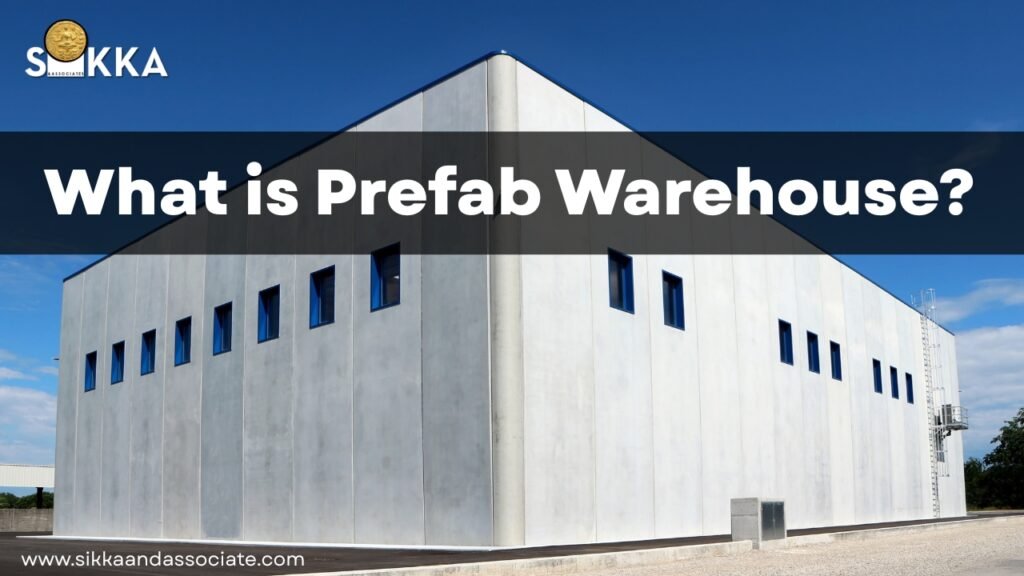In today’s fast-moving industrial world, businesses need quick, efficient, and affordable storage solutions. One such modern innovation that has become incredibly popular is the prefab structure warehouse. But what exactly is a prefab warehouse, and why is it becoming the go-to choice for industries of all types? Let’s dive deep and explore everything you need to know.
What is a Prefab Structure Warehouse?
A prefab structure warehouse (short for prefabricated structure warehouse) is a warehouse where most of the building components — such as the steel frame, wall panels, and roof — are manufactured in a controlled factory environment. Afterward, these components are transported to the actual site where they are quickly assembled.
This method is different from traditional construction, where everything is built from scratch directly at the site. Prefab construction saves both time and money, making it a smart choice for businesses that need fast and reliable storage space.
Key Features of Prefab Warehouses
Let’s take a closer look at what makes prefab warehouses so special:
1. Quick Construction Time
Since most of the structure is pre-manufactured, the on-site construction time is significantly reduced. A prefab warehouse can often be built in a matter of weeks rather than several months.
2. Cost-Efficiency
Prefab warehouses are generally cheaper than traditional buildings. With less on-site labor, reduced material waste, and faster project completion, businesses save a lot of money.
3. High Durability
Modern prefab warehouses are made from strong materials like galvanized steel, which ensures long-term durability. These structures are designed to withstand heavy loads, harsh weather conditions, and daily operational wear and tear.
4. Customization Options
Prefab doesn’t mean one-size-fits-all. You can customize the size, layout, number of doors, ventilation systems, insulation, and even the look of your warehouse according to your specific needs.
5. Eco-Friendly Construction
Since prefab components are made in factories, there is less material wastage and better quality control. Many companies also use recycled steel and other eco-friendly materials, making prefab warehouses a greener choice.
Types of Prefab Warehouses
Prefab structure warehouses can be designed for a variety of purposes:
-
Storage Warehouses: For storing raw materials, finished goods, machinery, and equipment.
-
Manufacturing Units: For assembling, producing, or processing goods.
-
Cold Storage: With proper insulation and cooling systems, prefab warehouses can store perishable goods like fruits, vegetables, and dairy products.
-
Agricultural Storage: For storing grains, farm equipment, and fertilizers.
-
Logistics Centers: For use as distribution hubs where goods are sorted and shipped.
Each type of prefab warehouse can be tailored to suit the industry’s unique requirements.
Advantages of Prefab Structure Warehouses
Now that you understand what a prefab warehouse is, let’s explore why businesses are choosing them over traditional buildings:
1. Speed to Market
If your business is growing rapidly, you can’t afford to wait months for a traditional building. Prefab warehouses allow you to be operational quickly and start generating revenue faster.
2. Reduced Operational Disruption
For businesses that already have operations running, constructing a traditional warehouse can cause major disruptions. Prefab construction, with its faster timelines, minimizes downtime.
3. Flexibility
Need to expand? Many prefab warehouses are designed in a modular way, which means you can easily add extra sections as your storage needs grow.
4. Lower Maintenance
Prefab structures, especially those made with steel, require minimal maintenance compared to traditional concrete buildings. They are resistant to pests, corrosion, and water damage when properly coated and maintained.
5. Portability
Some prefab warehouses can even be dismantled and moved to a new location if your business operations shift geographically.
Important Factors to Consider Before Choosing a Prefab Warehouse
While prefab structures offer many benefits, it’s important to consider a few key factors before making a decision:
1. Purpose and Usage
Understand what you will be storing or using the warehouse for. Will you need temperature control? Will there be heavy machinery inside? These answers will guide the design.
2. Location
The geographical location affects the type of foundation needed and the structure’s design (for example, earthquake-resistant structures in seismic zones).
3. Material Quality
Choose high-grade materials like galvanized or stainless steel to ensure durability and longevity.
4. Customization Requirements
Work with a manufacturer who can offer customizations that fit your operational needs, such as specialized doors, ventilation systems, office space integration, etc.
5. Budget
While prefab warehouses are more affordable, prices can vary based on size, features, and design complexity. Always get a detailed quotation and check what’s included.
The Future of Prefab Warehouses
As technology advances, prefab warehouses are becoming even more innovative. Here’s what the future looks like:
-
Automation Ready: Prefab warehouses are now being designed with smart automation systems for inventory tracking, loading/unloading, and climate control.
-
Sustainability Focus: Solar panels, rainwater harvesting, and energy-efficient designs are becoming common features.
-
Stronger and Lighter Materials: New materials such as advanced composites and lightweight alloys are being used to make structures even stronger and more resilient.
-
Design Flexibility: Modern prefab designs are breaking the old notion of “boring boxes” and offering more architectural creativity.
Prefab warehouses are no longer just temporary solutions. They are now seen as smart, permanent investments for companies aiming for efficiency and growth.
Conclusion
Prefab structure warehouses are revolutionizing the way businesses think about storage and operational spaces. Offering a winning combination of speed, affordability, flexibility, and durability, they are an excellent choice for businesses of all sizes. Whether you’re a manufacturer needing extra storage space, a farmer looking for grain storage, or a logistics company expanding distribution, prefab warehouses can give you the edge you need.
As industries continue to evolve and demand faster setups and sustainable solutions, prefab warehouses are set to become an even bigger part of the future.
In short: If you want to build smart, build prefab!






